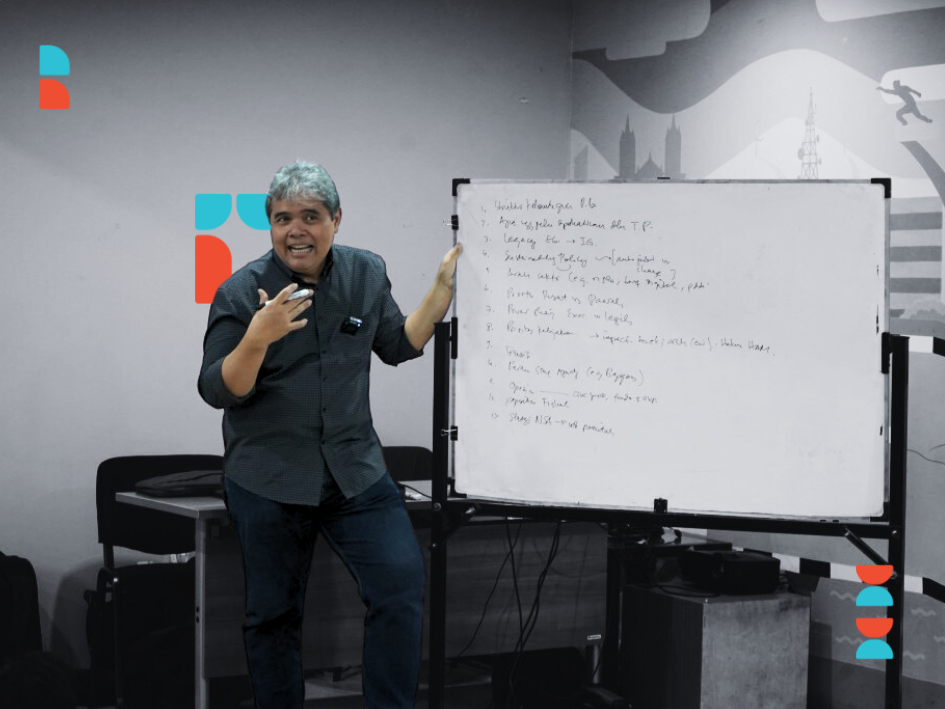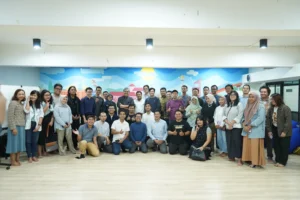Discussion on Comprehensive Strategies for Government Transition with Yanuar Nugroho

One of the current challenges of the government transition is the narrative of relocating Civil Servants (ASN) to the new capital, Nusantara (IKN), in Kalimantan. This condition will undoubtedly have a significant impact on the ASNs who have to be relocated to IKN. Recognizing that this narrative is becoming increasingly certain each day, it has become the basis for the collaboration between Maxima Impact Consulting and Nalar Institute to address these challenges by highlighting various possibilities that the affected segments will face.
Featuring Yanuar Nugroho, an Academic and Public Policy Practitioner as well as the CEO of Nalar Institute, he emphasized that to face the current leadership transition, many things need to be prepared. “These preparations involve various sectors, including the government, private sector, and the third sector to actively participate and be ready,” he said at the “Government Transition Challenges” discussion held in Jakarta on March 27.
To formulate strategies, it is important to start by studying the government’s direction, namely by reviewing the vision of the elected president and vice president with their 8 missions, 17 national priorities, and 8 quick wins to be implemented during the upcoming period. “Therefore, it is already possible to check what needs to be prepared internally and what needs to be supported externally to achieve these goals,” Yanuar added.
The current government transition is awaiting the distribution of executive players and their opposition. The presence of opposition in the government is needed to balance the continuity of democracy. “Hopefully, there will be a party willing to position itself as the opposition, sitting outside to monitor and correct when things go wrong,” Yanuar stressed to 30 selected participants from various strategic backgrounds.

All participants in the discussion “Challenges of Government Transition” in Jakarta.
One of the best practices Yanuar explained is to study how other countries’ governments achieve their program goals, one of which is by establishing delivery units. Delivery units are intended to prepare priority programs while improving the quality and speed of bureaucratic work.
In Indonesia, the Delivery Unit system has also been widely implemented. One of the first was the Presidential Work Unit for Supervision and Control of Development (UKP4), aimed at ensuring the vision, mission, and promises of the president are aligned and achievable during the term of office. On the other hand, Project Management Offices (PMOs), both internal and external to ministries, also provide an alternative to ensure programs run according to their objectives. For example, the Prakerja PMO under the Coordinating Ministry for Economic Affairs, or GovTech Edu under the Ministry of Education, Culture, Research, and Technology, the Digital Transformation Office under the Ministry of Health, and several other PMOs. “However, these PMOs are still short-term in nature because after that they must be handed back to the directorate to be completed. Another reference to study PMO knowledge can be found in the book ‘Deliverology 101’ by Michael Barber,” he concluded.
Do you want to prepare leaders, organizations, and communities to face the 2024 transition? Collaborate with Maxima Impact Consulting and discover various strategies to create impactful transformation!
